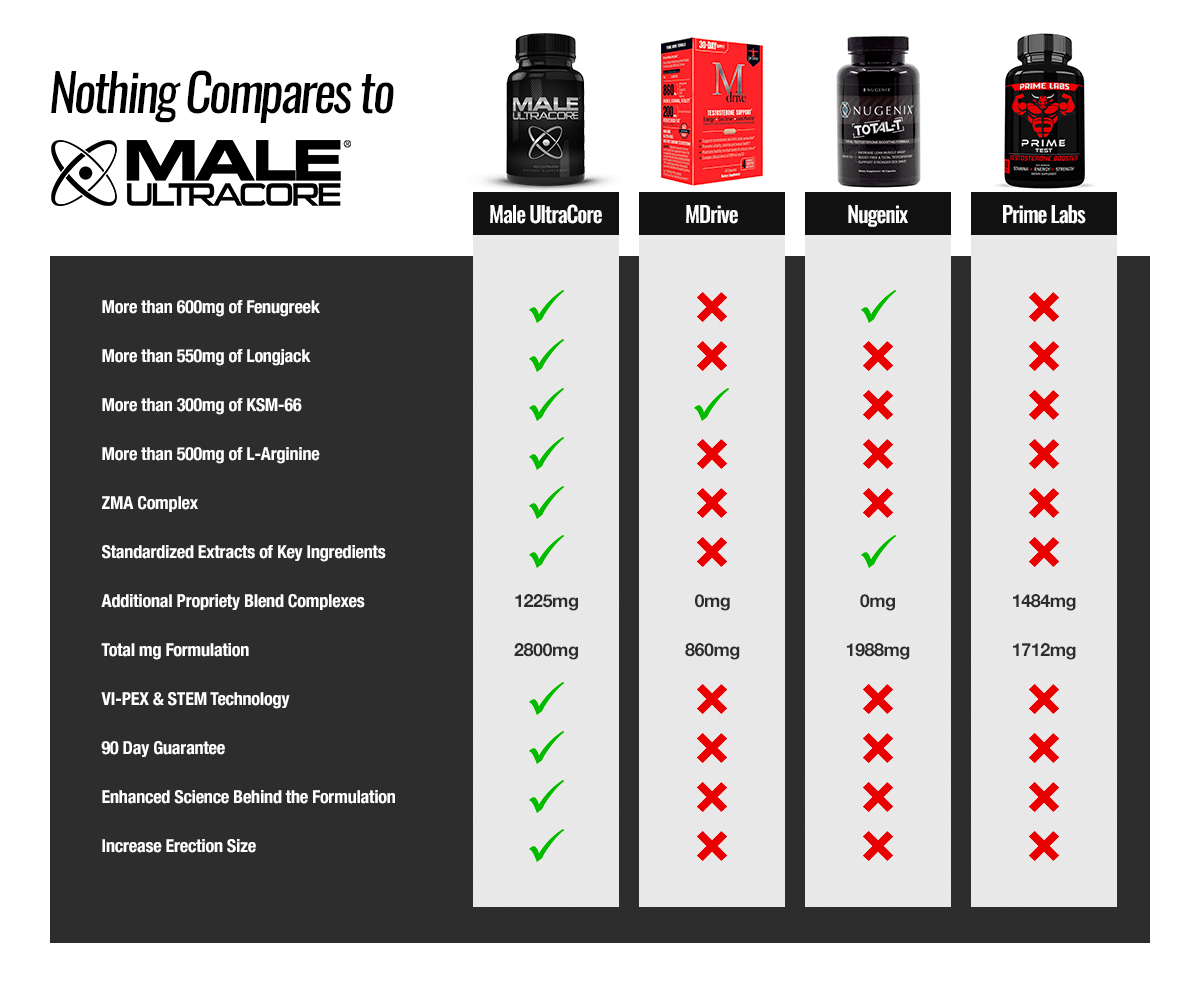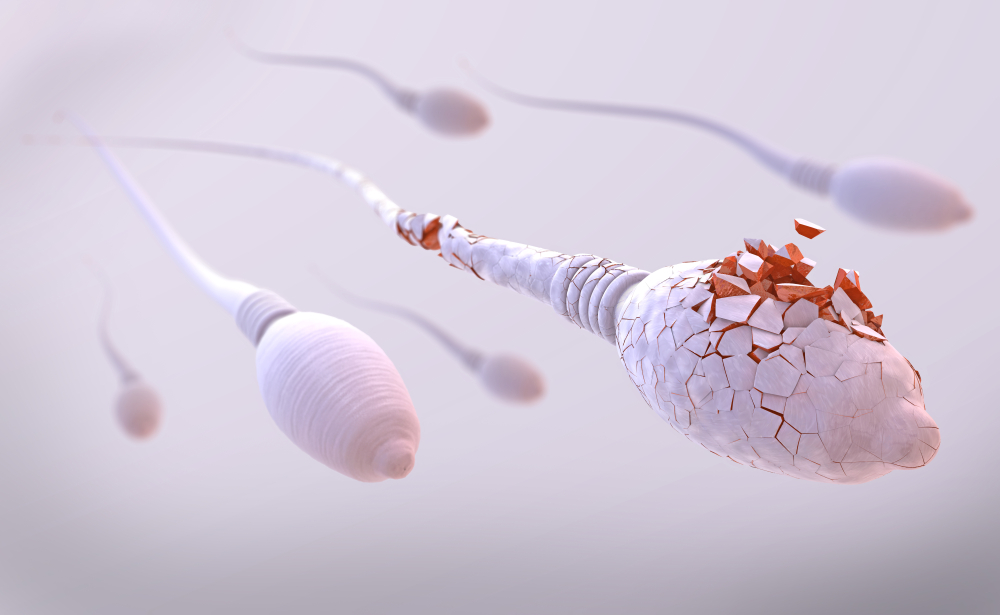A man’s fertility is a result of various factors, and sperm morphology is just one of the parameters that’s measured during a fertility test. There are instances when sperm morphology can greatly affect your chances of successful fertilization, especially when your other semen parameters are also very poor.
However, there are also times when abnormalities in sperm shape and size don’t really affect the overall functionality of your spermatozoa. Continue reading to learn more about sperm morphology and how you can improve your semen quality.
What is Considered Normal Sperm Morphology?
Normal sperm morphology means that the percentage of your sperm cells with normal shape and size fall between 4%-14%. Men with a sperm morphology score of less than 4% are considered possible candidates for assisted reproductive technology.
In order for a sperm cell to be counted as having normal morphology, its head should only be 5-6 micrometers long and 2.5-3.5 micrometers wide. If the head is thinner or longer, it’s counted as abnormal.
The shape of the head should be oval, and it should be smooth-rimmed. The acrosome, which is the membrane that enables a sperm cell to penetrate the egg cell, should cover 40-70% of the top of the head. If the acrosome is too small, the sperm cell may not be able to penetrate the egg cell or fertilize it.
The sperm midpiece, which connects that head and the tail, should be slimmer than the head, but the length should be similar. There should only be a single tail and its length should be 45 micrometers.
What is Teratozoospermia?
 Teratozoospermia is a condition that contributes to male infertility. A diagnosis of teratozoospermia means more than 85% of your spermatozoa are of abnormal shape and size.
Teratozoospermia is a condition that contributes to male infertility. A diagnosis of teratozoospermia means more than 85% of your spermatozoa are of abnormal shape and size.
The minimum score for normal sperm morphology is 4%, based on the World Health Organization guidelines. If it’s lower than that, then it’s diagnosed as teratozoospermia.
When most of your spermatozoa are abnormally shaped, you may have a hard time achieving spontaneous pregnancy. Sperm cells with abnormalities tend to have difficulties reaching the egg, especially if the abnormality affects the sperm tail.
A sperm cell with head abnormalities may not be able to penetrate or fertilize the egg cell. Another problem with abnormally shaped sperm cells is that they tend to contain abnormal or damaged DNA material.
It’s also common for an abnormally shaped sperm cell to contain an abnormal number of chromosomes, or the chromatin material is not properly condensed. An amorphous head, for instance, is associated with abnormal chromatin condensation.
Although it doesn’t happen all the time, there are instances when an abnormally shaped sperm cell is actually able to penetrate and fertilize the egg cell. This can be problematic if the sperm cell abnormality affects the genetic material that the sperm cell carries.
For men with teratozoospermia who opt to undergo fertility treatment, doctors usually recommend intracytoplasmic sperm injection.
This procedure is ideal because the doctor is able to choose a single sperm cell with optimal shape and size and inject it directly into the egg cell. The resulting embryo is then placed inside the woman’s uterus.
Factors That Affect Sperm Morphology
Several factors contribute to poor sperm morphology. There are cases when it’s due to genetics. Most of the time, however, poor sperm morphology is attributed to diet, lifestyle, and environmental factors.
Tobacco and alcohol consumption, for example, have been consistently associated with poor sperm morphology. Increased testicular temperature, chemical exposure, radiation treatment, chemotherapy medications, and testosterone injection have also been linked to a high percentage of abnormally shaped spermatozoa.
On the one hand, a diet that’s rich in zinc, vitamins, and antioxidants has been shown to help improve semen parameters such as sperm morphology and motility.
How to Improve Sperm Morphology
Several antioxidant supplements have been shown to help improve sperm morphology. These include vitamins C and E, L-carnitine, coenzyme Q10 or CoQ10, zinc, and selenium. Certain herb-based supplements have also been found to increase normal sperm morphology.
Tribulus terrestris
In both animal studies and clinical trials involving infertile as well as healthy men, Tribulus terrestris has been shown to help improve semen parameters such as sperm motility and morphology.
Rich in antioxidants, Tribulus terrestris has several health benefits such as improving testosterone production and controlling diabetes. Because it causes increased inflammation and oxidative stress, diabetes is considered one of the most common medical conditions that contribute to poor sexual performance and impaired fertility.
The antioxidant effects of Tribulus terrestris help lessen the damage caused by oxidative stress. In fact, one study showed that when Tribulus terrestris extracts are applied to semen samples stored for in vitro fertilization, the treatment resulted in improved sperm parameters and increased sperm viability.
Tongkat Ali
 Also known as Long Jack, Tongkat Ali is another that’s popularly used as a natural treatment for male infertility.
Also known as Long Jack, Tongkat Ali is another that’s popularly used as a natural treatment for male infertility.
The use of Tongkat Ali as a fertility enhancer has already been validated through several scientific studies.
One study, for instance, showed that men with idiopathic infertility greatly benefited from long-term supplementation with Tongkat Ali.
This popular herbal remedy has also been shown to help increase sperm motility, improve sperm morphology, reduce sperm DNA damage, and increase sperm count and concentration.
Fenugreek
Trigonella foenum-graecum, more commonly known as fenugreek, is an herb that’s known for its aphrodisiac properties. On top of its sexual performance-enhancing effects, fenugreek is also known to help improve testosterone levels and boost semen parameters.
A recent study revealed that after only 12 weeks of fenugreek supplementation, male volunteers experienced a 46%-90% improvement in free testosterone levels. The researchers also noted that the average sperm morphology improved by almost 15%.
Enhancing Your Sperm Health
For men who are worried about their poor semen parameters, Male UltraCore provides an excellent solution. Known as one of the leading supplements for male sexual performance enhancement, Male UltraCore is also great for boosting male fertility.
Not only does Male UltraCore contain Tribulus terrestris, Tongkat Ali, and fenugreek but it also contains maca, Ashwagandha, and Horny Goat Weed. More importantly, Male UltraCore contains zinc which is very important for normal sperm development and functioning.
Increase Your Testosterone Levels with Testosterone Boosters
Male UltraCore is a premium testosterone boosting supplement that is designed to maximize test levels, increase your performance and drive, and give you harder and fuller erections.






